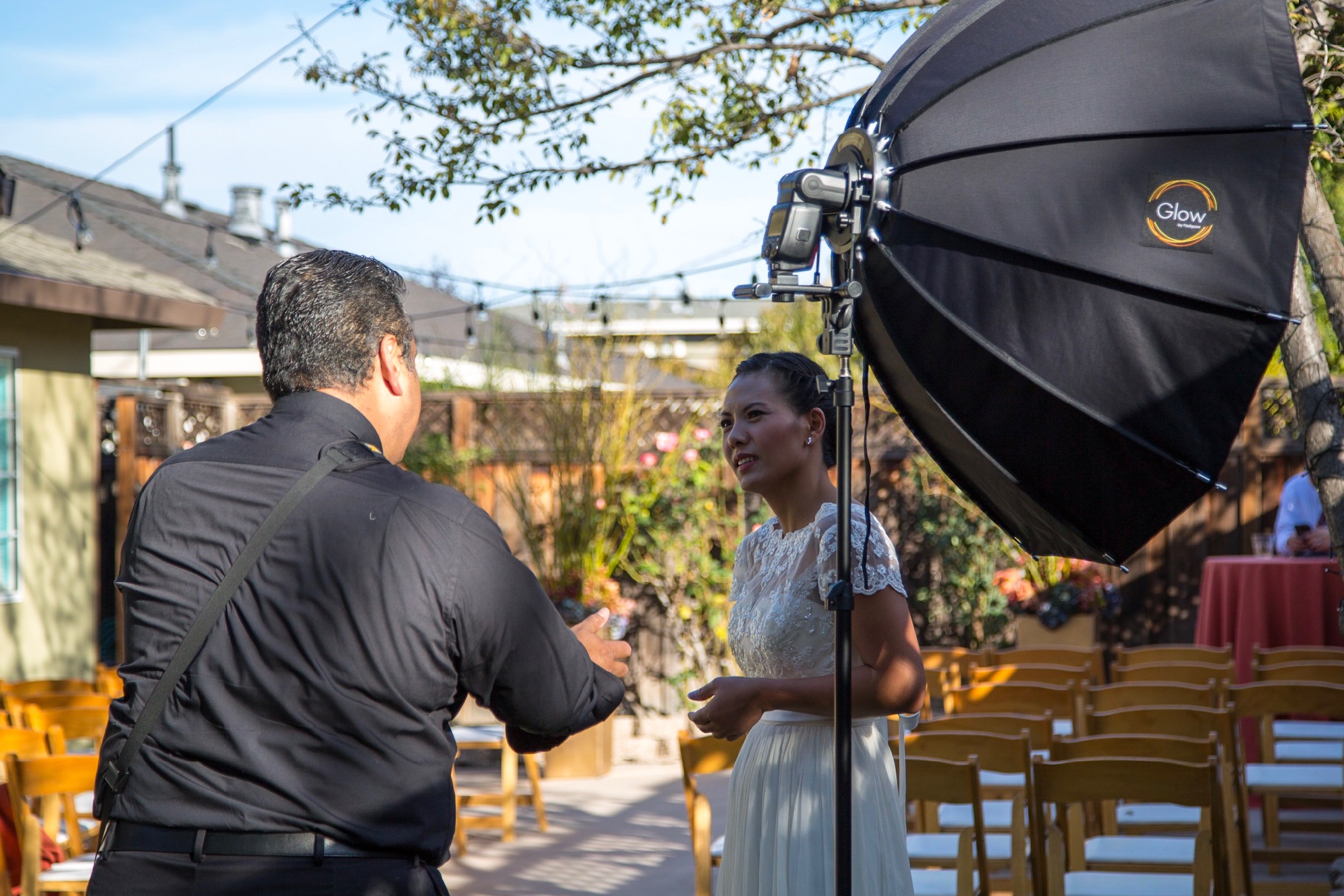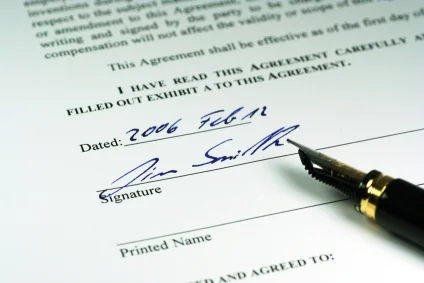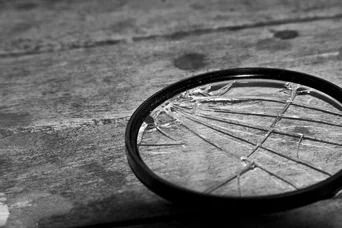Over the years we have met with dozens of couples seeking the right wedding photographer. Some couples we’ve met with were already decided on hiring us for their wedding because they were referred by a friend, or maybe they loved our online portfolio, or perhaps it was our 5 star reviews on Yelp that helped sway them. Other clients may have been interested in us because of our Yelp reviews and affordable wedding photography pricing, but still had questions, some couples more than others. Here are a list of five questions that we believe are the most useful to ask in your hunt to find for the right wedding photographer for you.
Will you be my actual photographer?
Is the photographer you met with at your consult the same photographer who will show up at your wedding?
Seems like an odd thing to ask a wedding photographer, but when you consider that an increasing number of wedding photographers are trying to increase their business through use of “associate photographers” it begins to make sense. The “associate photographer” is either an intern, or sub-contractor working under the brand of a main photographer, such as, “Jane Smith Photography.” This business practice should not be confused with the “second photographer,” who is just that, the “second camera guy” working along side the “main shooter” at an event to help ensure not one precious moment goes uncaptured. Typically, the associate or intern is trained to photograph weddings in the style of the “main” photographer, or the main photographer helps the intern develop their own style, while allowing them to photograph weddings under their brand. Using this business practice, “Jane Smith Photography” can now cover two or more weddings on the same Saturday in June. There is nothing wrong or unprofessional with this business model, so long as the photographer business you are contracting with to photograph your wedding is completely transparent about who is actually going to show up on your Big Day to photograph your wedding. It is also worth noting, there is usually a substantial surcharge to have the main photographer (i.e. “Jane Smith”) get out of bed on a Saturday photograph your wedding.
How would you describe your photographic style?
Candid documentary style photography can capture genuine emotions during a wedding.
Many clients say they have a preference for candid photos, but ultimately are glad they took the time for traditional wedding portraits.
By the time you actually schedule a consult with your potential wedding photographer you have likely viewed their online portfolio and how they photograph weddings resonates with you. There are three major photographic styles when it comes to photographing weddings. The Documentary Style is becoming increasingly popular all over the world. The photographer who practices this style shuns “traditional posed portraits” and instead attempts to “tell a story” by taking candid unposed photos throughout your Big Day. And when done right, the documentary photographer’s end product can tell a powerful story; Neale James, a documentary style photographer working out of the UK, has mastered this style elevating it to an emotionally charged art form when coupled with his “photo films.” Traditional Style, is another wedding photography style that you may be more familiar with. This style of photography does incorporate the “posed portrait” that you are certainly familiar with; traditional portraits of the bride and groom plus parents after the wedding ceremony are an excellent example of this style of photography. But keep this in mind, almost all wedding photographers switch between “traditional” and “documentary” styles of photography throughout a day when photographing a wedding: The “traditional photographer” who directed the bride, groom, and wedding party for a portrait after the ceremony will switch to “documentary style” during the cocktail hour, and speech making portion of the reception. The “documentary photographer” will (should) accommodate the Mother of the Bride’s request for a “posed portrait” with her daughter, new Son-in-Law and the Officient. A third, and increasingly popular style, is the “Hybrid Style” of photography. This style incorporates both photography, video and audio throughout the day. Video may be taken in long segments, or video clips and used in the final product that is delivered to the client, either as a long form video, or a “mash up” of photographs taken, plus video in a slide show, or “photo film” (see Neale James above). I have increasingly incorporated this style of photography into my workflow when covering weddings and similar events (Quinceañeras and Sweet 16s) to help deliver more value to my clients in the form of video slideshows which include photographic highlights of the event coupled with video clips with sound.
Are you a natural light only photographer, or do you work with artificial light too?
Is your wedding photographer comfortable using artificial light or strictly a “natural light” photographer?
”Natural light photography” refers to the style of portrait photography that works with available sunlight, sometimes with the use of a reflector. This style of portrait photography can yield beautiful and dramatic results during the “golden hour” (that time of day in the late afternoon, about 1 hour before the sun sets), and although this style of creating portraits can yield beautiful results, it can be very limiting to both the client and the photographer; the client and photographer have to schedule their portrait shoot around a very narrow window of time. There is a movement within the photography community of “natural light photography” which assert this style of portraiture is more “honest” and “genuine.” In fact, there are some photographers who schedule all their portrait appointments around the “golden hour” because that is their style and their clients seek them out for that specific look. On the other hand, there are some photographers who also claim to be natural light photographers when in reality they simply are not comfortable with the use of artificial light, perhaps because they haven’t invested the time and money necessary to learn off camera flash techniques. This has proven to be a controversy in the photography community, and you can read more about that here. Ultimately, a well rounded wedding and portrait photographer, just like any other professional, will know how to use all the tools available to them such as speedlights (flash units tht sit on top of the camera) and strobes (off camera portable lighting). So we advise wedding photogography clients to ask the photographer at their next wedding consult to show you examples of bridal photos they have taken at night. Skillful use of off camera flash can open up a whole world of beautiful and dramatic portraiture
Do you work with contracts?
A good contract protects both the client and the photographer and helps avoid misunderstandings.
Unless you are hiring your brother, or BFF, to shoot your wedding, the answer to this question should always be “yes.” A proper contract assures that there are no misunderstandings between the client and the photographer. Here are six things a photography contract must have to protect both parties: 1) The names of the client and the photographer and who is actually going to photograph your wedding; 2) How much is the photographer’s fee is in total, how much is their retainer/deposit, and what happens to your retainer if you need to cancel or change the date of the wedding; 3) What products is your photographer supposed to deliver, digital files only as download, or jpegs on a USB stick, prints, albums, etc -and how soon after the wedding, 4, 6... 8 weeks; 4) When and where is the photographer supposed to be and for how long, how much is “overtime;” 5) What happens if the photographer can’t show up for the wedding? Do they send a send an associate, offer a refund? You may also be asked to sign a “model release ” which is commonplace. This allows the photographer to use any of the photos taken at your wedding on their website or other marketing activities. These are the a few of the protections you as a wedding photography client should expect to see on your contract.
Are you insured?
Professional photographers should have insurance protecting both their equipment, and their clients.
Wedding photographers, and professional photographers in general should not only carry insurance to protect their equipment against damage or theft, but also have a liability clause in case their client is injured during a photo shoot. What happens if your photogher’s light stand falls over bonking your Aunt Josie on the head, sending her to the ER? Any responsible business carries liability insurance for just this kind of situation, because some times bad things happen -no matter how careful you are. Furthermore, most nice wedding venues require that third party vendors (ie. Outside caterers, DJ’s and photographers) carry and provide proof of insurance. We carry insurance to protect our business, and our clients.






